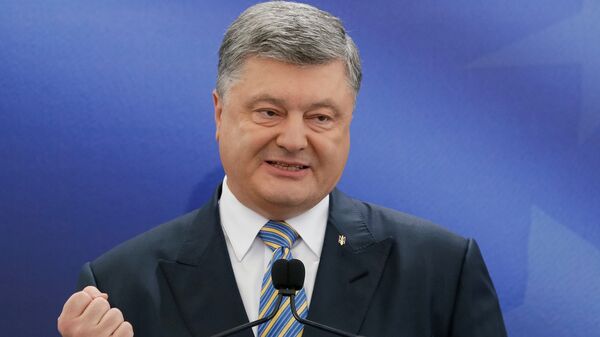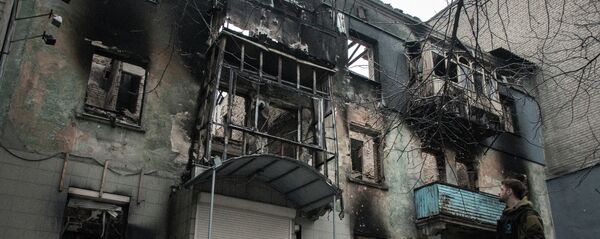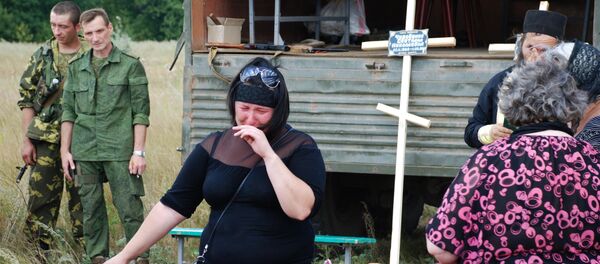On June 14, Ukrainian MP Andriy Teteruk warned that Kiev planned to ramp up its military operation in Donbass.
Almost simultaneously, US Secretary of State Rex Tillerson said that Washington no longer wanted to be “handcuffed” to the Minsk accords and that there could be other ways to settle the conflict, Alexander Khrolenko wrote for RIA Novosti.
Meanwhile, the United Nations has voiced concern about a possible military escalation in Donbass.
Heading to Washington for instructions
Ukraine’s Foreign Minister Pavlo Klymkin said that during their upcoming meeting Presidents Poroshenko and Trump will discuss ways to bring pressure to bear on Russia to implement the Minsk accords and grant international access to “occupied Crimea.”
Klymkin earlier hinted that he could have added some military aspects to his discussions with President Trump of economic sanctions against Russia.
If true, this is at odds with Washington’s decision to slash US financial assistance to Kiev.
Washington originally planned to line up over $570 million but ultimately scaled the sum down to just $177 million and Rex Tillerson said that Kiev and Moscow have a chance to settle the crisis outside the framework of the Minsk accords.
Alarmed by Washington’s conciliatory tone, Petro Poroshenko rushed to say that ending Kiev’s “antiterrorist operation” in Donbass without allowing its military to adequately respond to “an aggression” would leave Ukraine “defenseless.”
He also said that he had instructed his government to work out a draft law on bringing Donbass back under Kiev’s control.
Parubiy from the Pentagon
Adding credence to rumors about Ukrainian officials engaged in closed-door talks about possible supplies of US lethal weapons to Kiev, Ukrainian parliamentary speaker Andriy Parubiy said in a televised interview that the issue remained on the table and that possible deliveries of US lethal weapons to Kiev “have a technical and symbolic significance for closer cooperation between Ukraine and the United States.”
On Friday, Zoryan Shkiryak, an advisor to Ukrainian Interior Minister Arsen Avakov, said that Kiev was all set to “liberate” the parts of Donbass not yet under its control.
A road to peace
Russia, meanwhile, insists that peace in Donbass is impossible without the participation of the self-proclaimed Donetsk and Lugansk People’s Republics, and that the sides should stick to the provisions of the Minsk 2 accords.
Moscow also believes that it is up to Kiev and no one else to end the conflict and many reasonable people in the West fully share this opinion.
The situation in Donbass has escalated over the past few days, in particular near the town of Avdiivka in the Donetsk region, where clashes between
Kiev forces and the troops of the Donetsk People’s Republic have intensified. The conflicting parties have both accused each other of initiating the violence.
The Donbass conflict erupted in April 2014 as a local counter-reaction to the West-sponsored Maidan coup in Kiev that had toppled legitimate President Viktor Yanukovych in February.
Residents of the Donetsk and Lugansk regions held independence referendums and proclaimed the People's Republics of Donetsk and Lugansk. Kiev has since been conducting a military operation, encountering stiff local resistance.
Despite the agreement, the ceasefire regime is regularly violated, with both sides accusing each other of multiple breaches, undermining the terms of the accord.





